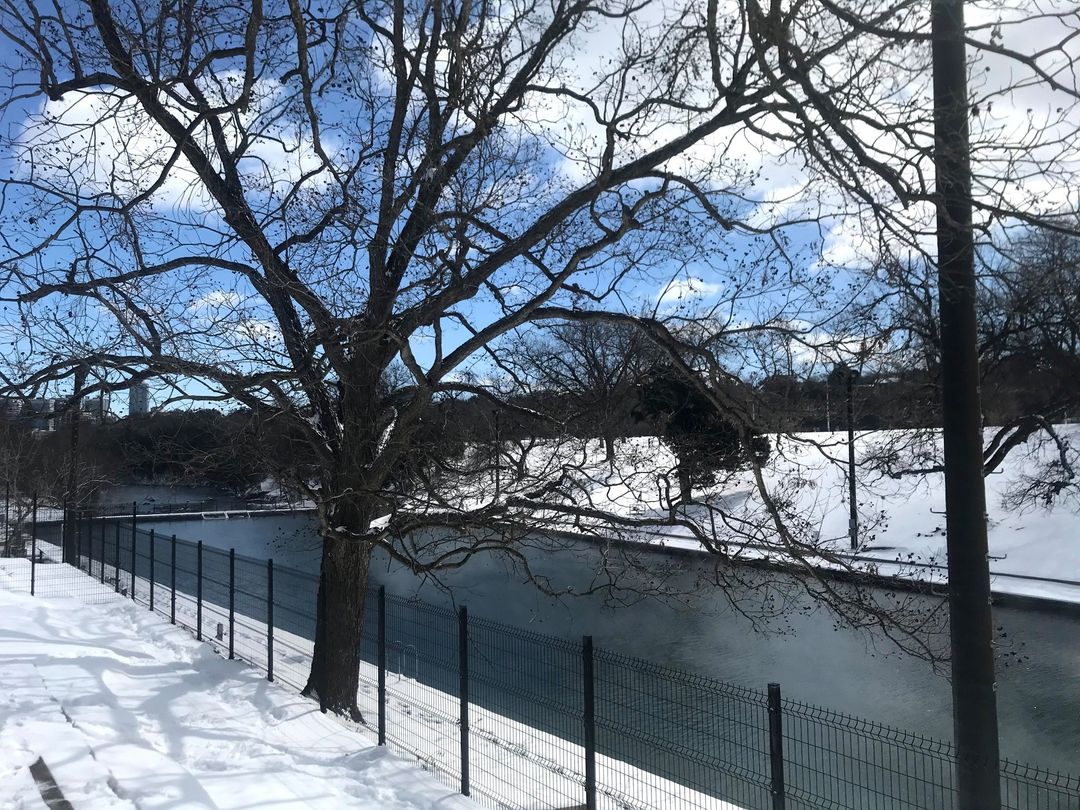
While individuals and departments shone in their dedication to the city and its people during the cascade of calamities caused by Winter Storm Uri, City Manager Spencer Cronk still has a lot of questions to answer when he releases the much-anticipated after-action report.
City Council gathered online Tuesday afternoon to hear from Cronk and leaders of the Emergency Operations Center, the Transportation and Public Works departments and three public safety departments about the extraordinary problems they faced as a result of the extreme low temperatures, accumulating snow, days without electricity and burst water pipes – all during a pandemic requiring social distancing.
Council Member Alison Alter wanted to know why Council hasn’t had emergency training. She noted that many Council members were reaching out to busy city disaster leaders, perhaps making their jobs more difficult, not easier.
Council Member Greg Casar said one important thing to figure out is what a Council member’s role within a district system should be during a disaster. He urged Cronk to have a plan and a “reconfigured set of expectations” for Council members. There were so many times, he said, when Council members didn’t know what to do, whether to fill a perceived void or even whom to ask for advice.
For example, Casar wanted to ask someone what to do with three truckloads of water donated by a community member. He told Cronk there should be a plan for such situations so Council members don’t “feel like we’re making this up from scratch” when such an emergency arises.
Council Member Kathie Tovo said Casar was “really nailing the experience. I did go through disaster training while on Council,” but it was “pretty clear within about two hours on Monday we were all stepping way outside the role that had been prescribed in that disaster training.”
Fire Chief Joel Baker described some extraordinary efforts on the part of firefighters who were trying to get to work. “Some came to work 24 hours before the storm because they knew if they did not come early they would not be able to get to work,” he said. Others tried to drive to work but their cars got stuck and they had to walk. He said civilians picked up some of those firefighters and took them to the nearest fire station so they could work.
“Some of our firefighters worked 48 hours or 96 hours” or longer, Baker said. They stayed at work because they knew other firefighters could not get to work. “Our firefighters really came through.”
Baker also praised the Fleet Department for its service during the ice storm. Because of the duration of cold weather, he said, the fuel in the vehicles began to gum up. “But Fleet overcame that. They delivered different types of fuel.”
Interim Police Chief Joe Chacon said there were so many collisions during the storm that APD was only able to send officers to crashes resulting in serious injuries. Others, he said, officers had to work over the phone. APD also provided security at shelters and water distribution centers on a 24-hour basis for eight days. In addition, APD provided emergency transportation for those who didn’t have it.
Overall, Austin fire, police and emergency management services provided critical services and racked up large overtime bills. The city expects to receive about 75 percent of $1.8 million in eligible expenses from the Federal Emergency Management Agency, but it wasn’t clear exactly how much the storm has cost Austin.
Mayor Steve Adler said he thought it was important for people in the community to figure out how to deal with a disaster. The city alone cannot shoulder the burden, he said. Many people demonstrated that they were capable of helping their neighbors, and in the future, Adler wants to make sure community members can step forward to help. “Some challenges are so great you can’t build a system” to meet those challenges all by themselves. The public has to play a role. But the challenge will be in figuring out how to convey that information. Council members seem eager to help with that.
The Austin Monitor’s work is made possible by donations from the community. Though our reporting covers donors from time to time, we are careful to keep business and editorial efforts separate while maintaining transparency. A complete list of donors is available here, and our code of ethics is explained here.
"many" - Google News
May 12, 2021 at 12:05PM
https://ift.tt/3uG3Dyi
Postmortem of winter storm raises many questions - Austin Monitor
"many" - Google News
https://ift.tt/2OYUfnl
https://ift.tt/3f9EULr
No comments:
Post a Comment